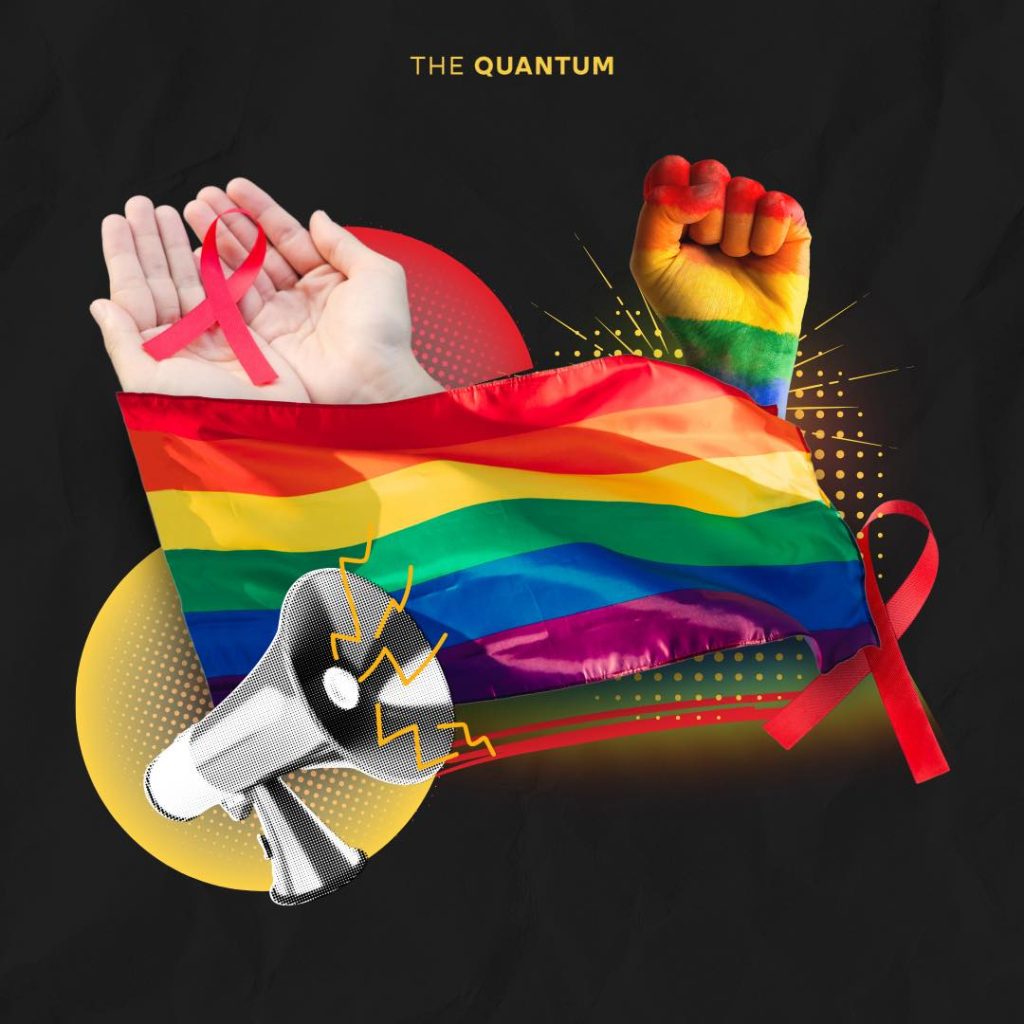By: Aljhur P. Danganan
Publication: Jamelle Ronquillo
Pride Month—a month to recognize the rights, culture, and significance of the queer community, has instead been bombarded with baseless accusations and stigma following the surge of HIV cases in the Philippines.
The sudden 500% spike in human immunodeficiency virus cases this month has sparked another wave of negative sentiments against the LGBTQ+ community. People were quick to question and point out how gay men continue to be disproportionately impacted by HIV. Whilst the statistics are true, the problem lies within the context of why it is that they are affected the most.
HIV being associated with queer people has already been acquainted decades ago. From the 1980s, the AIDS epidemic that began with gay men in the US, even termed “gay-related immune deficiency,” would be the start of this stigma. Likewise, the Philippines would experience its first case in 1984. This stain in history would then unfortunately pass on to generations up until now.
“Gay disease” has been a misleading term that has permeated throughout society in spite of the fact that anyone can contract it regardless of sexual orientation. Not only is it false, but it is one of the reasons why the stigmatization surrounding the community has aggravated. The problem is not the fact that HIV is rampant in queers. The deeper issue lies in our failure to realize that said stigma and discrimination are the driving force of this rise in cases. How do we expect them to feel accepting of their status when they are being ostracized and shunned? When this issue is viewed through a lens of negativity and shame, it only worsens the internalized stigma and perception people have of themselves.
Any comprehensive strategy must begin with considering this problem. Yet, not everyone is confident of going into a hospital without expecting to be harassed, mistreated, or denied service outright. Hypocrisy is at its finest, and it is necessary that everyone cooperates. It takes no effort to be respectful and supportive of those bearing the brunt of the virus. In fact, it is extremely easy to spread awareness and advocate for comprehensive education, strategic prevention, and healthcare access.
Pride Month was never just about celebrating queerness—it was highlighting the significance of breaking stigmas, how queer people have suffered from the implications of homophobia, and the fact that the LGBTQ+ community are humans, too. HIV is not something exclusive to queers, it is a harmful disease that deserves to be recognized and treated with dignity regardless of self. Before Pride Month ends, may the profundity of this matter lead to the dismantling of the ever-so-unhealthy stigma that continues to torment the lives of the queer community.




